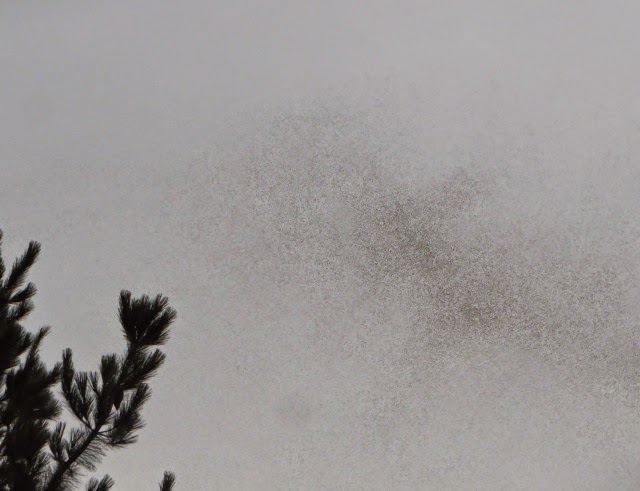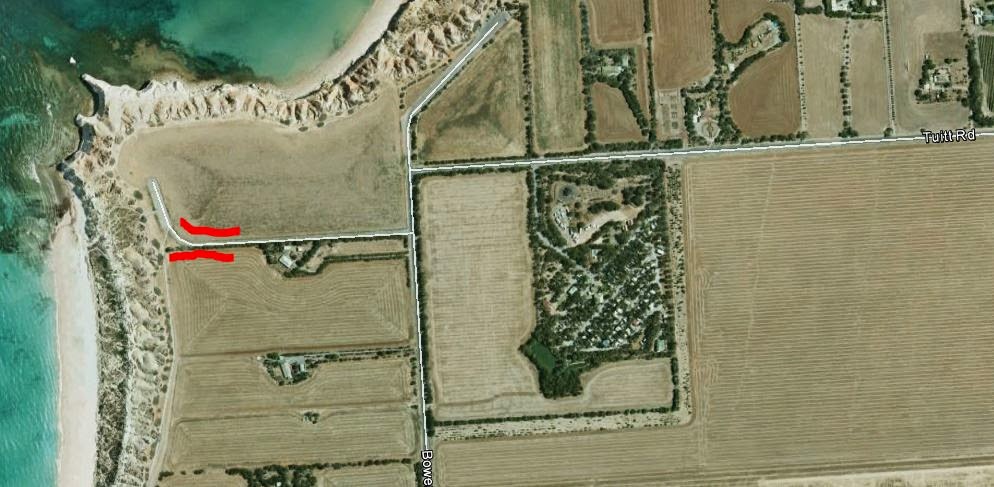The triffid arrives - and other stuff
When a group of plant-persons visited us recently one of the members was interested in the sculpture garden we have created and offered us a windmill head as a further installation.
So we headed off to Old Cooma Rd to pick it up. As the donor was a welder by trade he had built a crane for use in handling large rocks around the property. This was also very useful for elevating art-in-the-making.
Getting it out of the trailer was quite simple, merely involving some quick footwork as it slid a little more quickly than I expected. Obviously arranging it in a vertical position required some props. Fortunately three old bulldozed blades were available and placed.
The equilateral position of the supports was a little too simplistic so a few adjustments were made.
The old windmill blades have been put aside for other uses. This will involve paint I suspects.
Here we have the new sculpture with the "TV sink" and "breaking wave" works. As the addition has three supports and a whip-like thingummy poking out the top I have decided that it keys out to being a Triffid. I don't think it will roll around hunting people (or kangaroos) and hopefully will be stable enough not to collapse when a joey blunders into it.
Talk of plants with whip-like tops, can be led easily to Kniphofia (aka red Hot Pokers). We have two forms of this:
This year the warmer weather has kept a good display going in the garden ...
... and in the lounge (here augmented with some mauve salvia).
Having finished my artistic works I decided to go for a drive around the Hoskinstown Plain to see what birds were around. Before seeing any birds I found the pretty Claystone Herefords looking in excellent condition beside the road.
They were joined a little further on by a pair of Australasian Shelduck.
So we headed off to Old Cooma Rd to pick it up. As the donor was a welder by trade he had built a crane for use in handling large rocks around the property. This was also very useful for elevating art-in-the-making.
Getting it out of the trailer was quite simple, merely involving some quick footwork as it slid a little more quickly than I expected. Obviously arranging it in a vertical position required some props. Fortunately three old bulldozed blades were available and placed.
The equilateral position of the supports was a little too simplistic so a few adjustments were made.
The old windmill blades have been put aside for other uses. This will involve paint I suspects.
Here we have the new sculpture with the "TV sink" and "breaking wave" works. As the addition has three supports and a whip-like thingummy poking out the top I have decided that it keys out to being a Triffid. I don't think it will roll around hunting people (or kangaroos) and hopefully will be stable enough not to collapse when a joey blunders into it.
Talk of plants with whip-like tops, can be led easily to Kniphofia (aka red Hot Pokers). We have two forms of this:
- one which flowers in Summer and is very popular with Eastern Spinebills and other Honeyeaters; and
- a Winter flowering form which usually flowers the day before a serious frost (which has an effect similar to Brewers Droop).
This year the warmer weather has kept a good display going in the garden ...
... and in the lounge (here augmented with some mauve salvia).
Having finished my artistic works I decided to go for a drive around the Hoskinstown Plain to see what birds were around. Before seeing any birds I found the pretty Claystone Herefords looking in excellent condition beside the road.
They were joined a little further on by a pair of Australasian Shelduck.













Comments